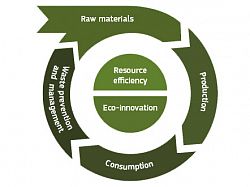

A new set of Regulations has been published which requires companies affected by the extended producer responsibility scheme (EPR) to collect data, and in the case of large companies, report on the data in relation to the packaging they supply and handle on UK market.
Currently, the Government has published Regulations for England, Scotland and Northern Ireland. As of today, Regulations covering Wales are yet to be published, but it is expected they will be published soon and will contain very similar provisions.
Scope
The Packaging Waste (Data Reporting) (Scotland) Regulations SSI 2023/7, Packaging Waste (Data Reporting) (No.2) (Northern Ireland) Regulations SR 2023/25 and Packaging Waste (Data Reporting) (England) Regulations SI 2023/219 came into force on 28 February 2023.
These Regulations require producers with an annual turnover of over £2 million and producing more than 50 tonnes of packaging each year, to collect and report the data on the type and amount of packaging they supply. Smaller producers with an annual turnover of over £1 million who handle more than 25 tonnes of packaging each year, are also required to collect the data on the supplied packaging, but currently they will be exempt from reporting that data to the environmental regulators.
The purpose of the data collection and reporting is to help implement the EPR, expected to be fully operational in 2024, which will require producers of packaging to pay a fee through a scheme administrator to district councils, which will cover the costs of collection and disposal of packaging when it becomes waste.
These Regulations are expected to be in place for one year, after which they will be revoked and replaced by the Producer Responsibility Obligations (Packaging and Packaging Waste) Regulations 2023.
Reporting requirements
Under these Regulations, a person established in Scotland, Northern Ireland or the UK who meets the turnover and packaging production criteria, must report on all types of packaging they produce, including:
Packaging and packaging waste is considered to be made from:
In the case of mixed materials, the packaging is made of material that is predominant by weight. If the packaging is made in equal parts of two types of materials, the packaging materials must be treated separately for the purpose of these Regulations.
From 1 January, companies must collect the packaging data where it is available and report on it on a bi-annual basis, with the first period being from March (or January if the data is available) 2023, with subsequent reporting required every six months afterwards.
The first report is due on 1 October 2023.
From July 2023 it will be possible to register the organisation and report using an online EPR platform.
Exemptions
There are certain exemptions to the rules listed in these Regulations where the producers do not need to gather data and report on the packaging, including:
Additionally, charities are exempt from the data gathering and reporting requirements under these Regulations.
For more information, see: